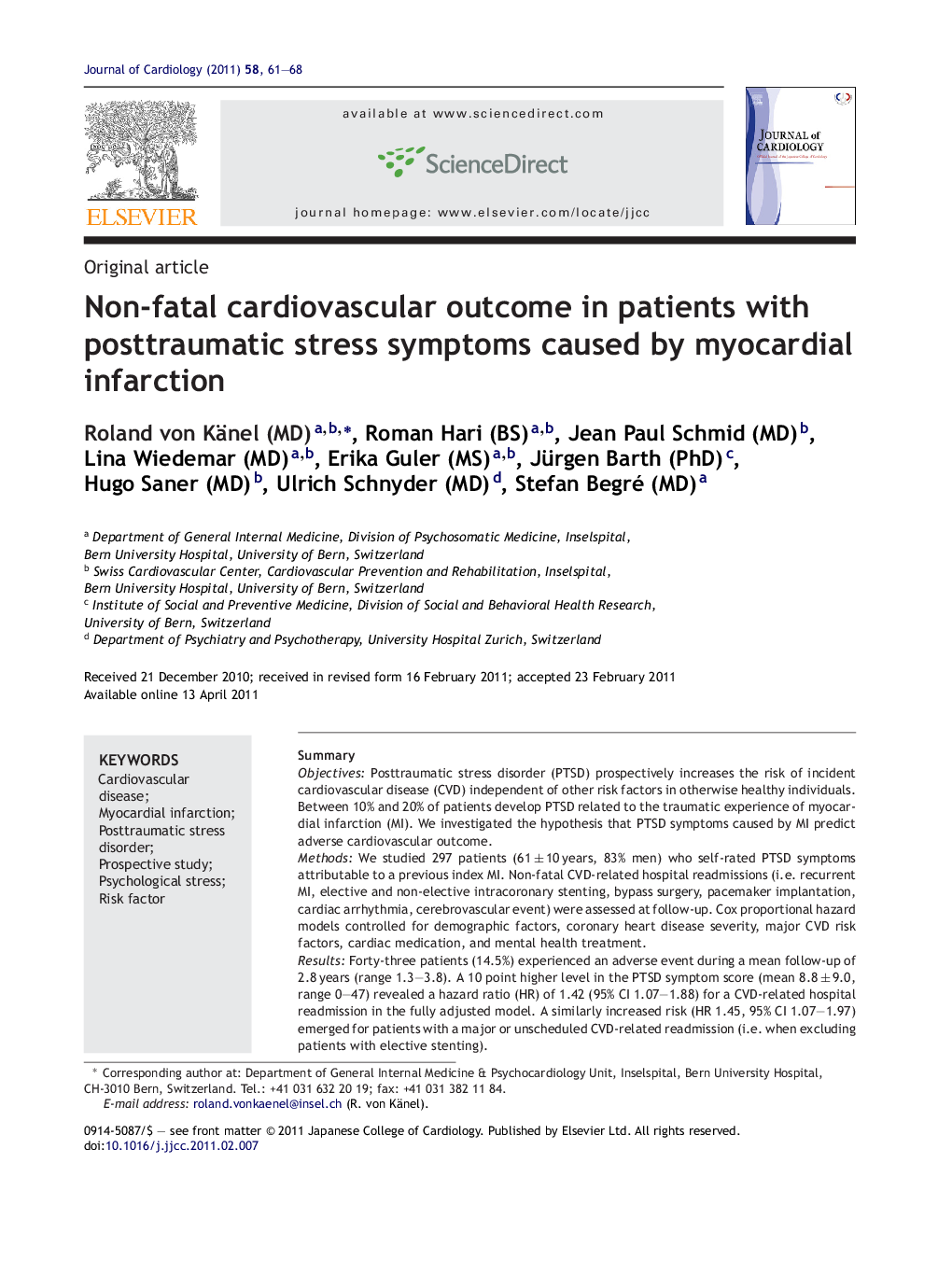| Article ID | Journal | Published Year | Pages | File Type |
|---|---|---|---|---|
| 2963394 | Journal of Cardiology | 2011 | 8 Pages |
SummaryObjectivesPosttraumatic stress disorder (PTSD) prospectively increases the risk of incident cardiovascular disease (CVD) independent of other risk factors in otherwise healthy individuals. Between 10% and 20% of patients develop PTSD related to the traumatic experience of myocardial infarction (MI). We investigated the hypothesis that PTSD symptoms caused by MI predict adverse cardiovascular outcome.MethodsWe studied 297 patients (61 ± 10 years, 83% men) who self-rated PTSD symptoms attributable to a previous index MI. Non-fatal CVD-related hospital readmissions (i.e. recurrent MI, elective and non-elective intracoronary stenting, bypass surgery, pacemaker implantation, cardiac arrhythmia, cerebrovascular event) were assessed at follow-up. Cox proportional hazard models controlled for demographic factors, coronary heart disease severity, major CVD risk factors, cardiac medication, and mental health treatment.ResultsForty-three patients (14.5%) experienced an adverse event during a mean follow-up of 2.8 years (range 1.3–3.8). A 10 point higher level in the PTSD symptom score (mean 8.8 ± 9.0, range 0–47) revealed a hazard ratio (HR) of 1.42 (95% CI 1.07–1.88) for a CVD-related hospital readmission in the fully adjusted model. A similarly increased risk (HR 1.45, 95% CI 1.07–1.97) emerged for patients with a major or unscheduled CVD-related readmission (i.e. when excluding patients with elective stenting).ConclusionsElevated levels of PTSD symptoms caused by MI may adversely impact non-fatal cardiovascular outcome in post-MI patients independent of other important prognostic factors. The possible importance of PTSD symptoms as a novel prognostic psychosocial risk factor in post-MI patients warrants further study.
